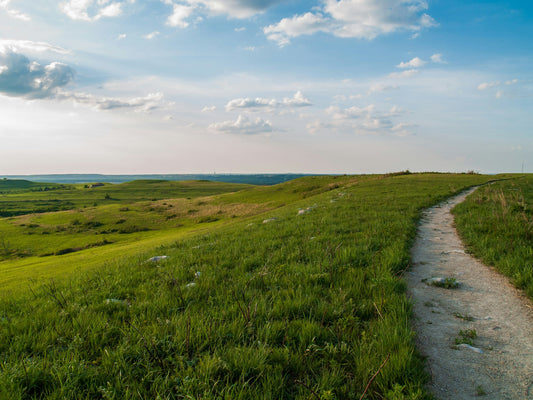How to Recover From Edibles If You Accidentally Take the Wrong Dose
Underestimating edibles is a common mistake most consumers make at some point.
You or someone you know may have gotten impatient and decided an extra dose was needed. Flash forward a half an hour or so, and the double dose of effects is now substantial and likely unpleasant.
The room may start spinning. Nausea could set in. Anxiety levels could begin to spike. No matter the case, it's an unpleasant experience to avoid.
Worst of all, cases have seemingly spiked thanks to expanding access to THC and other minor cannabinoids. The combination of a product boom and many inexperienced or unprepared consumers in part causes the spike.
Understanding dosages, the expected effects, and what to do in the event of overconsumption is key to having an enjoyable edibles experience without overdoing it.
Understanding THC Dosages
The cannabis plant contains hundreds of chemical compounds. They include cannabinoids, both well-known and many under the radar. Some of the most consumed cannabinoids today include THC, CBD, CBG, CBN, and hundreds more.
THC is the primary psychoactive compound present in cannabis. It's the reason people experience intoxicating effects often called a "high." When consuming cannabis, THC's effects become significantly more potent, and this is why many experience the impact of overconsumption.
While generally well-tolerated by humans, cannabinoids such as THC can cause severe side effects when overconsumed. That risk is why many pay close attention to dosage.
Microdose
A microdose is a small dose of cannabis that most consumers say allows them to enjoy the therapeutic benefits of cannabis with minimal chances of becoming high.
Dosing figures vary by the person's preference, product branding, etc. But, in most cases, a microdose falls between .5 and 5 mg.
Most won't feel much if any intoxicating effects from a higher microdose of five milligrams. Still, anyone concerned or just not interested in feeling high should consider starting with a low dose and assessing how they feel in 30 to 120 minutes.
The "Regular" Dose
Usually, 5 to 10 mg of THC is considered a moderate dose. Various sources will offer a range of recommended doses. But, according to most state-level recreational cannabis laws, edibles are capped at 10 mg per serving, helping set a standard of sorts.
This dosage is the legal retail standard in most markets, as it is believed to offer potent effects without overwhelming consumers.
Keep in mind that there are exceptions to dosing rules in the US, with some states capping servings at five milligrams. The only exception is the medical market, where some states allow higher doses to qualified patients.
High Dose
A high dose of THC ranges anywhere from 20 or more mg, depending on the person's preferences and perceptions of dosing.
While most people will feel adequate effects from a standard dose, some recreational consumers claim to need higher doses to experience a similar result. Many medical consumers have similar claims, and come backed with doctor recommendations to support their need.
Snoozy offers a variety of doses for consumers to try and enjoy, delivering a variety of daytime and nighttime effects in a dosage suitable for a variety of consumers.
Factors Influencing Dosage
Each person experiences the effects of cannabis differently, with various internal and external factors playing a role.
Dosage is critical in shaping each outcome. Factors influencing dosage include, but are not limited to:
- Consumption method utilized
- Product potency
- Consumer's body composition
What is THC Overconsumption
Even with weed, too much of a good thing can turn sour. That's why consumers need to avoid the effects of overconsuming THC.
Over-intoxication of THC occurs when a person consumes too much THC, possibly triggering a series of unwanted outcomes. Adverse effects of consuming too much THC typically include (1)(2):
- Decreased short-term memory
- Dry mouth
- Impaired perception and motor skills
- Red eyes
- Nausea
- Dizziness
- Paranoia
- Hallucinations
- Impaired cognition
- Impaired driving skills
- Skewed perception of time
- Extreme anxiety
- Panic attacks
- Sudden high blood pressure
- Headaches
Typically, the effects of edibles can last up to 12 hours before wearing off (3).
Edibles: They're Not Like Smoking and Vaping Weed
People often say that edibles hit differently than smoking or vaping. And they'd be right.
Compared to inhaled cannabis, edibles take longer to kick in; we call this an onset time. Usually, it takes 30 minutes to two hours for an edible to take effect.
As mentioned above, the effects last longer once they take hold in the body. They are typically much more potent than traditional THC consumption.
The prolonged onset and more substantial effects are both caused by the edible's journey through the body's digestion process. With smoked and vaped cannabis, the effects hit the lungs and bloodstream in mere moments.
Edibles are subject to the same process as any food or drink we consume. At the tail end of this slow process, the liver produces an enzyme called CYP2C9, which converts delta-9-THC into 11-Hydroxy-THC (4), a metabolite up to three times more potent than inhaled THC.
THC Overconsumption Signs
Consumers are often overwhelmed by a host of physical and psychological effects after consuming too much THC (5). While certainly unwelcomed, they provide some clear signs that someone may have had too much.
After consuming acute doses, consumers may experience unwanted outcomes such as:
- Panic attacks
- Hallucinations
- Delusions
- Sense of detachment
- Dizziness
- Nausea
- Slurred speech
- Increased heart rate
- Dry eyes
- Dry mouth
- Mild disorientation
- Increased lethargy
- Declined cognitive functions
How to Recover from Edibles and Other Forms of THC Overconsumption
Remain Calm
One of the reasons so many people have a hard time when they consume too much weed is that they can begin to panic or experience higher anxiety or paranoia levels.
If this happens to you, try to be calm and remember that these side effects are not permanent and are non-lethal. The bad times will be over soon and you will be okay, even if it's not so pleasant right now.
In the meantime, try to find a safe space where you feel comfortable. If you can, focus on taking deep breaths to try and slow down your panicked energy.
Put Down the Weed
The last thing you'll want to do is add more THC to the equation. Instead, focus on drinking water, breathing deeply, having a nutritious snack, or something good for the body. Bonus points if it helps generate happiness, calms the mind, or otherwise distracts your mind.
If you are going to consume cannabis while in this state, stick to CBD, which is nonintoxicating.
For years, CBD was linked to reducing or lessening the effects of THC in consumers. However, those claims have been contested in recent years (6). More on this is in a section below.
Stay Hydrated and Fed
Some people may vomit after consuming too much THC, depleting the body of its nutrients.
Ensure you stay hydrated to replenish the fluids you may lose.
It's also not a bad idea to drink something even if you aren't vomiting. In very few cases is having a glass of water going to cause adverse effects in a person.
If water isn't around or to your preference, herbal teas and electrolyte-rich drinks are often good options. Try to avoid caffeine, alcohol, and sugar-heavy drinks, which all carry effects that may not help with several overconsumption symptoms.
Don't forget to eat. Eating fruits, whole grains, and snacks rich in protein may help stabilize the body's blood sugar.
Light Exercises
Exercise has been linked to helping with anxiety symptoms (7). Consider doing some light exercises such as yoga or walking next time you're feeling too high from your weed edibles.
Be aware that you may feel dizzy or experience declined cognitive skills when overconsuming cannabis. So, consider exercising with a sober partner in case things go south.
Rest and Sleep
Sleeping and resting can help during THC overdose by allowing the body to metabolize THC more effectively and reducing the intensity of symptoms like anxiety and dizziness.
Rest also promotes recovery and helps restore cognitive and physical function.
Can CBD Help with THC Overconsumption?
We aren't so sure at the moment.
For many years, it was believed that CBD could offset the severity of some effects associated with THC through various effects on the body's endocannabinoid system (ECS).
But now, some are reexamining if CBD truly helps offset the effects of THC, as previous studies and anecdotal evidence have suggested. In one 2023 study, researchers found that CBD may increase the effectiveness of THC in edibles (8).
Keep an eye out for additional analyses for a better understanding of this topic.
Edibles: They're Fun, but Do Your Homework First
Edibles are an incredible method of consuming cannabis. Known for their discretion, versatility, controlled dosing, high potency, delicious flavors and so much more, they are an ideal option for countless recreational and medical consumers.
Still, edibles are highly potent and may overwhelm consumers, especially if a person doesn't know their ideal dosage. That's why it's paramount to understand the product about to be consumed and the effects it may produce.
Newcomers and those with lower tolerances should proceed with caution. When in doubt, use the "start low, go slow" method (9).
This incremental approach to edibles has the consumer trying a smaller dose, between 1 and 5 mg, and waiting 30 to 120 minutes before deciding if another dose is needed.
Medical consumers are recommended to consult with a qualified medical professional before using cannabis to treat any conditions or symptoms.
Consulting with a medical professional may help identify an ideal starting dosage while also considering the effects cannabis may have on any existing drugs or treatment regimens currently in process.
No matter what type of consumer you are, understand the potential effects an edible may deliver. And be sure to verify it's made from a reputable retailer with third-party lab reports to verify its contents.









